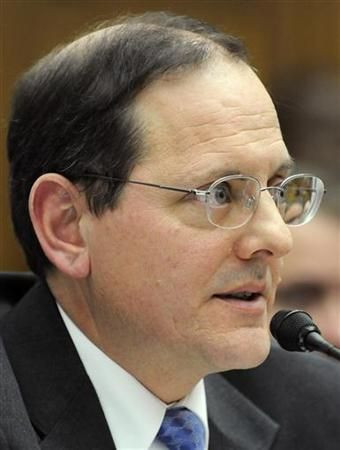Fannie-Freddie Mortgage Reductions Vetoed By Regulator, Underscoring Tension Over Housing Cure
Analysis

A top U.S. housing regulator refused Tuesday to offer principal reductions for mortgages held by Fannie Mae and Freddie Mac, highlighting a sharp difference in views over how to aid the beleagured real estate market.
Edward DeMarco, acting director of the Federal Housing Finance Agency, which oversees Fannie and Freddie, said in a statement that the "anticipated benefits do not outweigh the costs and risks." The FHFA argued that reducing mortgage sizes for borrowers will shift losses onto Fannie and Freddie and may encourage some borrowers to default on their mortgages in order to receive the benefits.
The Treasury Department, which has advocated for more principal reducations, along with the Obama administration and Democratic lawmakers, was quick to disagree.
"I do not believe it is the best decision for the country," wrote Treasury Secretary Timothy Geithner in response to the decision. The Treasury Department said the program would offer direct relief to beleaguered homeowners and minimize losses by helping homeowners keep paying their mortgages.
But DeMarco has long said his mandate is to minimize taxpayer losses, even if it comes at the expense of the housing market as a whole. The FHFA's role is to "preserve and conserve" the agencies, as it said in a February report, which means protecting them from policies that may weaken their already fragile finances.
Fannie and Freddie have received more than $180 billion in taxpayer funds since the September 2008 government takeover. The agencies are required to pay a 10 percent dividend on preferred stock controlled by the Treasury each quarter, and the collapse of the housing market also severely weakened their pre-2008 portfolios, although Fannie posted a profit in the first quarter.
The debate over principal reductions has broken down along partisan lines, with Republicans such as Rep. Scott Garrett of New Jersey commending DeMarco. “This thoughtful and analytical decision-making process should be used as model for the rest of Washington’s bureaucrats before they make decisions without properly considering the costs and benefits to the taxpayer,” he said in a statement.
In contrast, Rep. Brad Miller, D-N.C., said the FHFA was "paralyzed by the fear" of homeowners attempting to game the system.
Decisive action on housing -- and the future of Fannie and Freddie -- is unlikely until after the presidential election, but as Bloomberg View noted Monday, neither candidate has offered specific policies on the issue, one of the major segments of the U.S. economy.
© Copyright IBTimes 2024. All rights reserved.





















